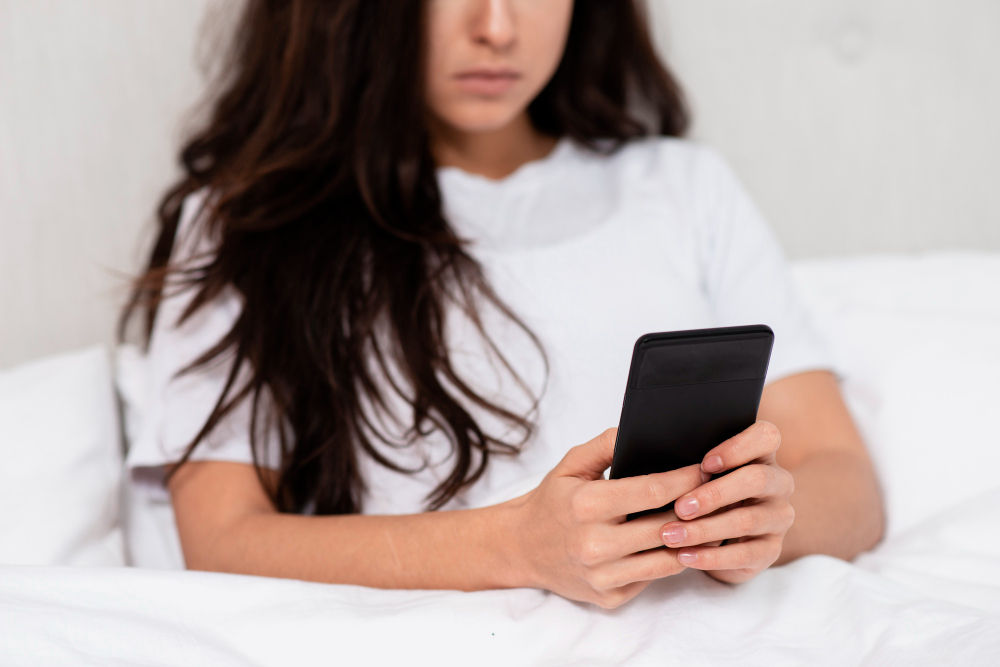Dear Yogesh,
How can I alter my habits when they are an addiction? I'm trying not to be distracted, but I can't resist checking my phone or any other electronic device. The first thing I do every morning is to check my phone, scroll a little, and then leave my bed. Can I benefit from GTD skills?
Regards,
Amita
Dear Amita,
We appreciate your queries. How to modify behavior was the first question, and "Can the
GTD skills help?" was the last. The latter has a loud "Yes!" as the answer. But only if the abilities turn into habits.
A habit is "something you do (mentally or physically) that starts as a choice and then becomes a nearly automatic pattern." The question is not "Can the GTD skills help?" but "How do I make the GTD skills habits?".
How HABITS Work
Allow me to introduce The Habit Loop to you. The brain tries to minimize effort, which is why habits develop. There are three steps in this loop:
- A cue, or something that causes your brain to switch to automatic mode, comes first. This could refer to a location, an hour of the day, a person, or an item.
- Then comes a routine. Most people envision a physical, mental, or emotional behavior when thinking of a habit.
- There is a reward in the end. The routine is reinforced emotionally.
This cycle becomes increasingly automatic with time. To create a new habit, you must decide on a routine, yet frequently, that needs to be improved. Utilizing cues and rewards is crucial.
THE PRINCIPLES OF CHANGE IN HABIT
According to the "golden rule" of habit transformation, you can only replace bad habits. We strive to stop negative behaviors far too frequently. However, giving up is not a behavior. Instead, we must swap out negative behavior for positive behavior. It works using the same cue and reward but switching up the routine.
APPLICATION
With today's technology, it's simple to react to whatever is new and loudest, which leads to busy but ineffective work. Digital distractions have a way of hooking individuals in the morning. GTD practitioners believe that looking at their calendars and to-do lists before reading their emails or texts is the most effective way to overcome this temptation. Why? You cover your eyeballs with the "latest and loudest" if you start your day by checking your email and notifications. However, if you begin each day by reviewing your schedule and
to-do list, your objectives, and top priorities are displayed first.
Why, then, do we act in this ineffective manner? Look at the loop now.
- Cue: You see your phone or hear and see notifications when you wake up.
- Routine: You pick up your phone and quickly check social media, email, or texts.
- Reward: What is the reward, exactly? You might believe that there is none. "Checking my email every five minutes doesn't pay off. It wastes time and makes me anxious.
Extrinsic rewards are those you obtain in exchange for performing a task or routine, such as cash, recognition, or other intangibles. Alternately, they could be intrinsic—an emotional reward when a psychological drive is met.
There needs to be some inner motivation for behavior to become habitual. Rewarding behavior is repeated. So, ask yourself, "What emotional reward do I receive from using my device's distractions?" It could take some serious digging to find out what motivates your behavior. A feeling of control is a frequent benefit. It could be social interaction. You may believe you are assisting others—the stimulation and sense of urgency appeal to you.
Assume for the sake of argument that you start to feel in command.
You feel controlled when you constantly check your email because you know what's coming at you.
Or would you?
If feeling in control is your primary objective, you should know that you have given up control when your decisions are made based on the most recent emails. When you have more important tasks, you start responding to these emails.
You may tell yourself, "I must stop checking my emails first thing in the morning." But keep in mind that you can only change unhealthy habits. Your current routine must be replaced with a new one.
- Cue: When you awaken, your phone is there.
- Routine: After picking up your phone, you quickly check your calendar and to-do list.
- Reward: This new practice enables you to consider your choices in light of what you've already determined to be crucial. Now you can work on your regular tasks more successfully.
When I've tried to break a habit, I've found two statements from Charles Duhigg's book The Power of Habit particularly helpful. The first is that "Change might take time and effort. But practically any habit may be changed with time and effort.
And the second is, "If you believe you can change—if you make it a habit—the change becomes real."
These suggestions will be beneficial. I'd also like to know how other people have increased productivity using the ideas and techniques from The Power of Habit. In the comments, please.
Regards
Yogesh
Reference Link: The above is an adaptation of a blog written by Scott Robley on April 19, 2023. https://cruciallearning.com/blog/how-to-put-down-your-device/

